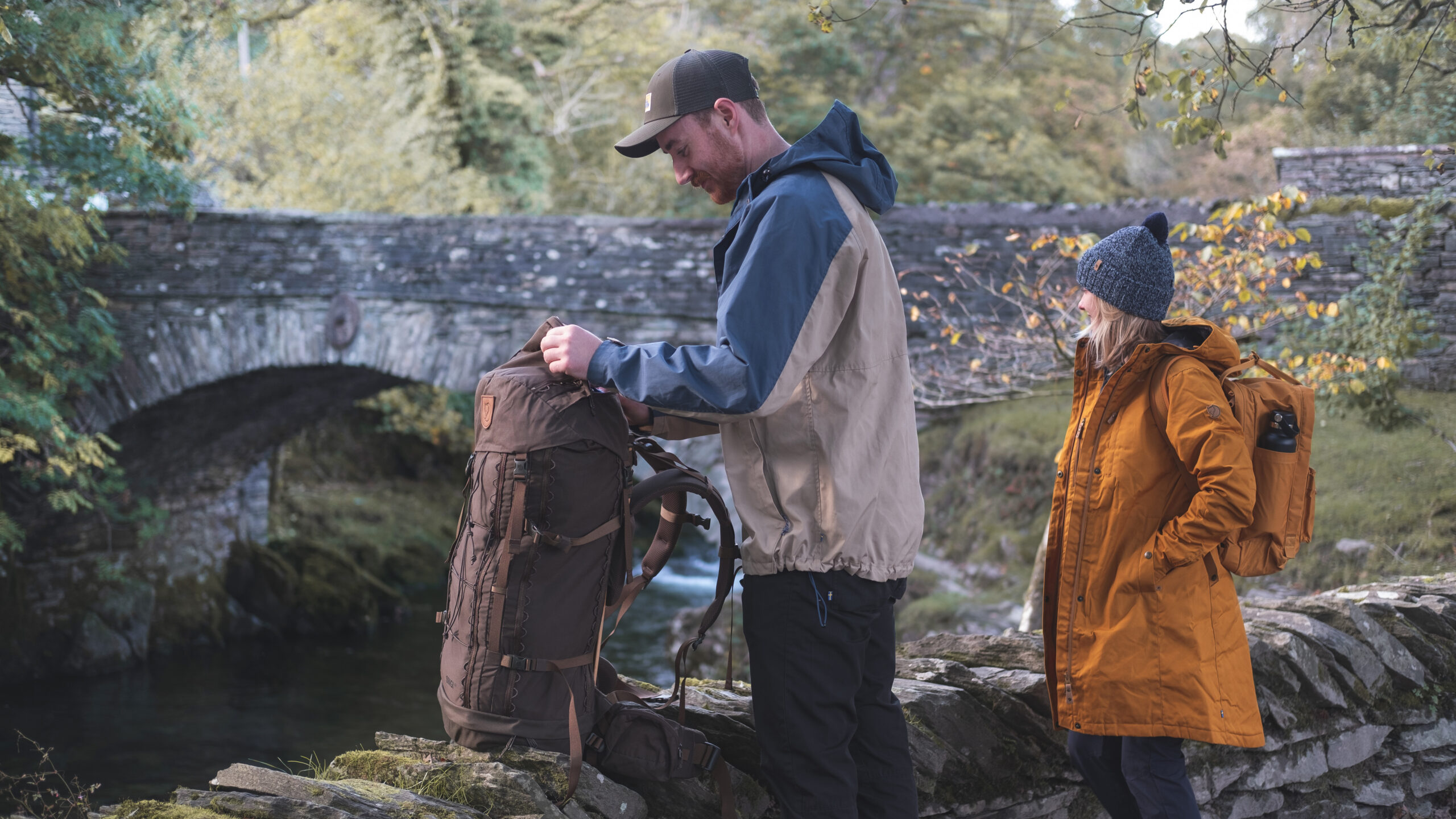Say Goodbye to Heavy Packs: Tips for Lightening Your Load
I’m going to assume you’ve found this blog because your pack is uncomfortable in some way. This could be down to two things. The fit or the stuff inside; or rather the excessive amount of it. If you’d like to learn about pack fitting before diving into this blog, you can here. Excessive amounts of kit will put unnecessary strain on your shoulders, hips and knees, causing increased fatigue, imbalance and damage. Here are great ways on how to reduce the weight of your pack without becoming someone who drills holes in their toothbrush.

How to reduce the weight of your pack: Lightening load on a Hike or Camping Trip
If you’re heading out with someone else, there are many items only one of you has to carry. Assuming you’re having lunch together, why not just take one stove? If camping, consider sharing a tent and splitting it evenly between you both—one can carry the flysheet and poles, the other carries the inner and pegs.

Jacket Pillow Hack: How to Create a Comfy and Lightweight Camping Pillow with Your Gear
Camping pillows are great; they’re comfortable and they pack down really small but they are a luxury item that can very easily be swapped for a drybag stuffed with some comfy clothes. A down jacket loosely packed into a drybag provides a comfortable experience that saves you precious weight and space in your pack. For bonus points, wrap the drybag in a baselayer for a bit of comfort next to skin.
Minimalist Camping: How to Cut Down on Weight by Leaving Personal Care Items Behind
Do you mind smelling? If you’re heading out for an overnight adventure, do you really need to take deodorant, shampoo or body wash? In fact, do you even need a toothbrush if it’s just one night? Consider ponging for a while and leave the luxuries at home! If you’re dead-set on smelling fresh, Sea to Summit produce a range of Wilderness products, from wipes to body wash. These are lighter and more environmentally-friendly than your average supermarket alternatives and will still eliminate some vital grams. You could even decant them into smaller containers if you’re feeling really obsessive.
Dehydrated food vs wet food
Technically not free, but you’re eating anyway so let us have this one. Dehydrated food is easy to carry, easy to store, lasts almost forever and is much lighter than wet food. All you have to do is add some boiling water to it, stir and let it sit for a few minutes. Plus, they’re a lot better than they used to be (gone are the days where they just tasted of powdered salt!). Granted, you will have to carry some additional water to add to your dehydrated meal, but if you’re near a water source then this isn’t an issue.
Reducing the weight of the pack itself!
Many packs have features that can be removed such as compression straps, rain covers, internal padding or even the lid itself (if it’s top-loading). Only remove these if you’re sure you won’t need them, or are mentally prepared to deal without them on a long walk, but this could remove hundreds of grams of weight from your pack itself.
With these tips and tricks, you should be well on your way to reducing the weight of your pack. You should enjoy your outdoor adventure to the fullest. Remember, the key is to be mindful of what you’re carrying. Bare in mind to to only bring the essentials. By packing smart and light, you’ll be able to hike further, explore more, and have a more enjoyable experience. So, go ahead and give these tips a try on your next outdoor adventure. See how much of a difference they can make!

Leave a Reply